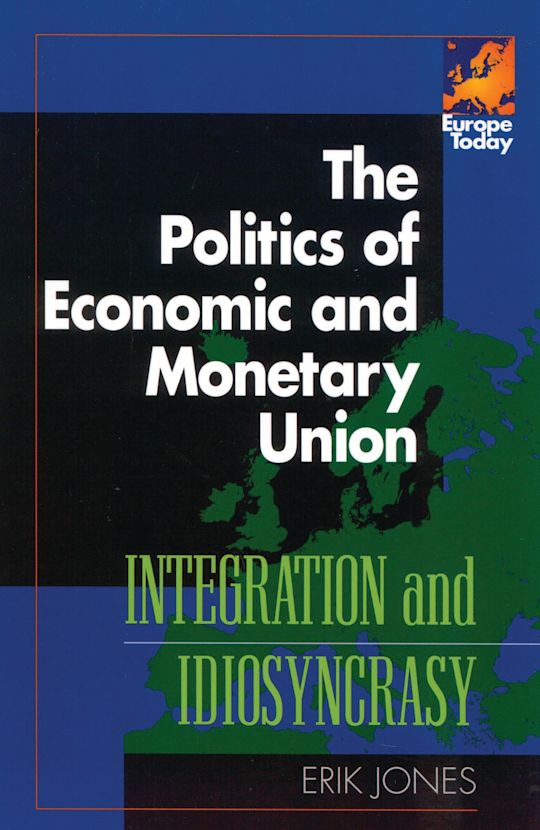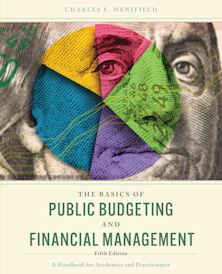- Home
- ACADEMIC
- Politics & International Relations
- Public Management, Administration and Policy
- The Politics of Economic and Monetary Union
The Politics of Economic and Monetary Union
Integration and Idiosyncrasy
- Textbook
The Politics of Economic and Monetary Union
Integration and Idiosyncrasy
- Textbook
Buy from Bloomsbury eTextBooks
You are now leaving the Bloomsbury Publishing website. Your eBook purchase will be with our partner https://www.vitalsource.com.
Your credit card statement will show this purchase originating from VitalSource Technologies. They will also provide any technical assistance you might require.
You must sign in to add this item to your wishlist. Please sign in or create an account
Description
The formation of an economic and monetary union among twelve of Europe's leading economies is the most exciting experiment in modern political economics. Can a single monetary policy satisfy the needs of twelve very different countries? Does the establishment of a European central bank herald the emergence of a new, more federal European Union? Will Europe's new single currency, the euro, come to rival the dollar for world leadership? Or will the euro collapse as conflicts between participating countries work to tear the European economic and monetary union apart? The Politics of Economic and Monetary Union offers surprising answers to these questions. By focusing attention on who wins and who loses from the creation of the euro, Erik Jones argues that the diversity of participating countries is a strength rather than a weakness, that Europe's single currency helps to maintain such diversity rather than to eliminate it, and that while the euro may never rival the dollar it is nevertheless unlikely to fall apart. As long as the politics of EMU differs from one country to the next, the monetary union is unlikely to face concerted or destabilizing opposition. Thus, the book concludes, EMU should be as difficult to dismantle as it was to create.
This clearly written textbook provides a comprehensive exploration of the formation of an economic and monetary union among twelve of Europe's leading countries, the most exciting experiment in modern political economics. Erik Jones charts the embattled history of this extraordinarily project, explains the reasons it developed, and assesses how the controversies surrounding it may evolve in the future. Can a single monetary policy satisfy the needs of twelve very different countries? Does the establishment of a European central bank herald the emergence of a new, more federal European Union? Will Europe's new single currency, the euro, come to rival the dollar for world leadership? Or will the euro collapse as conflicts between participating countries work to t
Table of Contents
Chapter 2 Technology: Theory and Practice
Chapter 3 Design: Interdependence and Accountability
Chapter 4 Legitimacy: Delegation and Distributive Preferences
Chapter 5 Symmetry: Mobilization and Adjustment
Chapter 6 Motivation: Insulation and the Welfare State
Chapter 7 Context: Ambition and Constraint
Chapter 8 Determination: Power and Collective Action
Chapter 9 Symbolism: Expectations and Idiosyncracies
Chapter 10 Conclusion: The Politics of EMU
Product details
| Published | 23 Apr 2002 |
|---|---|
| Format | Ebook (Epub & Mobi) |
| Edition | 1st |
| Extent | 224 |
| ISBN | 9781461700265 |
| Imprint | Rowman & Littlefield Publishers |
| Series | Europe Today |
| Publisher | Bloomsbury Publishing |
About the contributors
Reviews
-
The most lucid, clearly argued, and theoretically sophisticated political science treatment I have ever seen on EMU. The Politics of Economic and Monetary Union will no doubt become a definitive work on the most audacious experiment ever in European integration.
John Peterson, University of Glasgow
-
The Politics of Economic and Monetary Union is valuable for its criticism of more systematic views of integration, and particularly for its careful dissection of rationalist expectations about monetary unions.
International Studies Review
-
There is a lot of simplicity and dogmatism in debates concerning EMU. The book's greatest merit is its capacity to cut through this confusion and to offer pragmatic and evidence-based arguments in a genuine political economy analysis demonstrating an interdisciplinary grasp of the matter.
International Journal of Political Science
-
A fiercely intelligent book. The scope of Jones's knowledge of the politics and economics of EMU is remarkable, as is his capacity to communicate its complexity in accessible terms. As the only analysis I know that stretches from the technology of the single currency to its symbolism, it deserves and will surely attract a wide and varied audience. This is not 'just' a book about EMU; it is also an intriguing and entertaining account of what 'Europe' is and what it is becoming.
Martin Rhodes, European University Institute



































